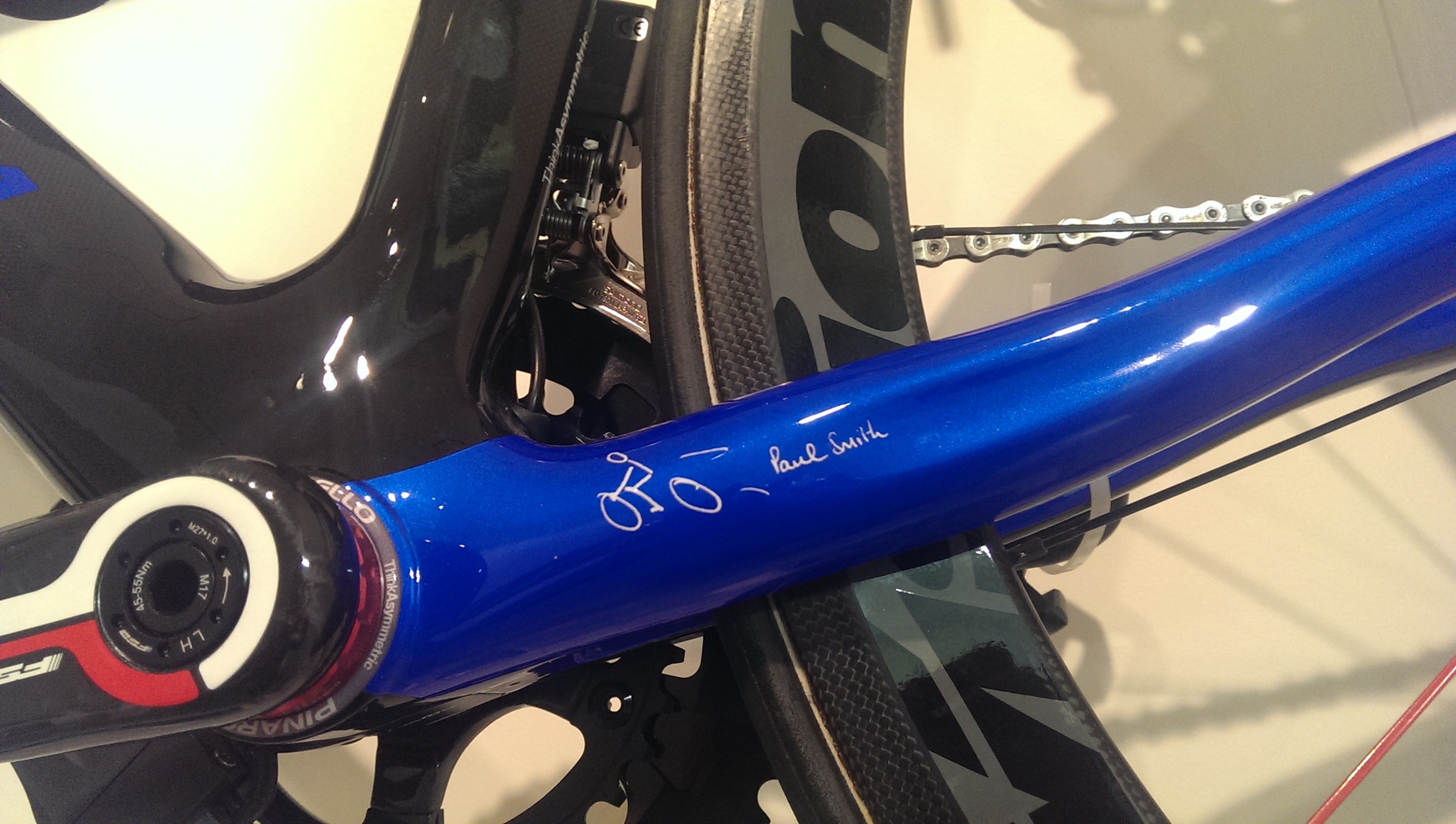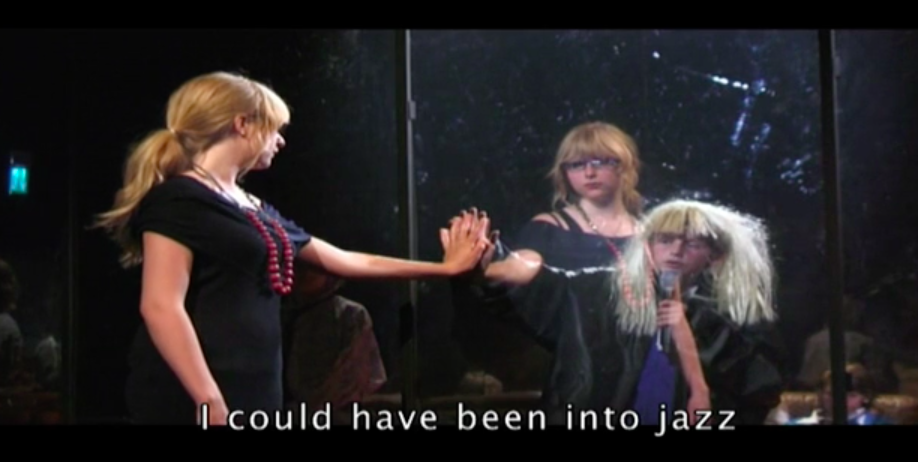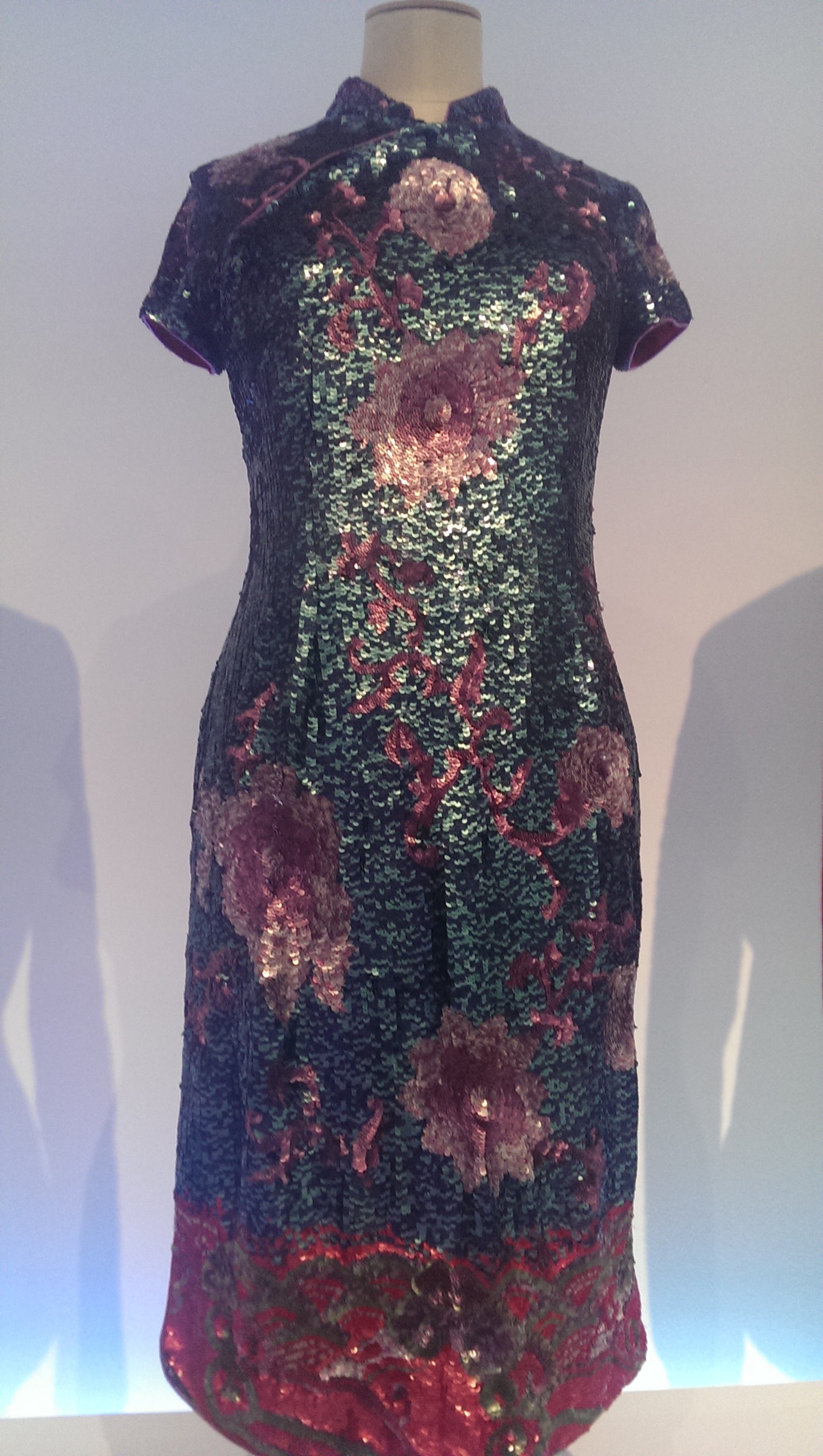It's been a while since my last review of media law. During that time we've seen the Snowden and NSA scandal ratchet up public anxiety about the surveillance state and received confirmation of the High Court's tough stance on defamatory tweets post-McAlpine. Not forgetting the musings of the Leveson report. Neither the industry, nor free speech organisations such as Index on Censorship, nor the political parties could agree: does the report go too far, or not far enough in curbing the intrusive behaviour of the press following the News of the World revelations?
Read MoreBack to school – dos and don'ts for publishers, editors and journalists
Let's get…
Adolescence, mental health, ageing and death. Artists and performers have mined these often complex and upsetting subjects for hundreds of years but has there ever been a collective shot for the jugular quite like Sick!?
This arts festival, taking place in Brighton from February until the end of March, has caught the eye because it treads a more holistic path than the one you and I are more likely to encounter. There's entertainment on offer, of course. But there's oodles of enlightenment too. Sick! hopes to challenge perceptions, prompt reflection and encourage debate by drawing on a powerful alliance of artists, scientists and medical experts. A fusion of the factual and the emotional, if you like.
Clive Parkinson, Director of Arts Health at Manchester Metropolitan University, gives a great example of this in his festival introductory essay, Present Tense: Confronting Mortality. "Whilst the modern version of the Hippocratic Oath urges clinicians to avoid the 'twin traps of over treatment and therapeutic nihilism', it also stresses that 'there is art to medicine as well as science, and that warmth, sympathy and understanding may outweigh the surgeon's knife or the chemist's drug'."
He then goes on ask, "Can artists provide insights into cultural, social and political attitudes towards death and dying?" The example given is a quote from then terminally ill playwright Dennis Potter, a wake up call to live in present and, through the arts, attain some kind of wellbeing. "We're the one animal that knows were going to die, and yet we carry on paying our mortgages, doing our jobs … behaving as though there's eternity in a sense. We tend to forget that life can only be defined in the present tense. You know I can celebrate life. Below my window … the blossom is out in full now. It's a plum tree, it looks like apple blossom, but it's white, and looking at it, instead of saying, 'Oh that's nice blossom,' looking at it through the window when I'm writing. I see it is the whitest, frothiest, blossomest blossom that there ever could be. The fact is that if you see the present tense, boy do you see it! And boy, can you celebrate it!"
There is a temptation to view this festival as an endorsement of arts therapy. Some of you may have seen last year's Souzou exhibition in London, a collection of art made by residents of specialist care institutions in Japan, each diagnosed with a cognitive, behavioural or developmental disorder or mental illness. In Japan this 'Outsider Art' has been closely aligned with public health and social welfare for many years, a means for residents to not only produce work for the sake of creation alone, but also to learn to accept the world and their place in it.
But that's not the main point with Sick! as co-directors Tim Harrison and Helen Medland explained to the Argus: "We don’t claim to be providing a cure. We want to raise awareness of these issues. Perhaps through being really open about it, we can help to reduce the stigma that still exists. Even if we can’t solve a problem, sometimes just acknowledging that the issue exists is an important first step. Maybe some of the works and debates in the programme will give others, the friends and families of people with mental illness, some new understanding of those experiences that the people they know are going through."
The directors hope that those coming to the festival will see something that encourages them to talk more freely about difficult 'life topics' and empathise more deeply with outsiders; the afflicted, the troubled and the lost. To do that they've called on a wonderful mix of characters: the amusingly confessional (Ruby Wax on depression and how we sabotage our own sanity); the balletically poignant (dancer Koen de Preter's performance with a partner 58 years older than him); the deliciously playful (Hart and Darton's cafe-cum-surgery); and the achingly beautiful (Frank Alva Buecheler & Neil Hannon's In May – a series of scored letters from a dying father to his son).
Throw in a handful of debates featuring the contributions of more than 25 experts in their respective fields, and film oddities such as Halley – Sebastian Hoffman's surreal take of one walking dead man's will to live – and you have a platter of challenging, often confrontational work that will have you tingling with life in no time. No wonder Brighton & Hove City Council has cited the festival as part of its public health strategy.
Adolescence has been a topic of particular interest to me. How many of us feel the pressure to act our age, conforming to a certain checklist of life milestones? Things you should be or do by a certain age… As a young boy I always felt in a hurry to grow up. Obsessed with academic achievement and desperate be a success. So I kept my head down and ploughed on through. But at what cost? Last night I went to Gob Squad's Before Your Very Eyes, looking for a few answers. This was the eagerly anticipated last part of the CAMPO trilogy of theatre works with children, made for an adult audience. The first part was Josse De Pauw’s üBUNG, followed by Tim Etchells’ That Night Follows Day.
Gob Squad are a collective of UK and German artists "exploring the point where theatre meets art, media and real life." In this case, society's obsession with youth and ageing. Our viewfinder to this self-conscious world is a Big Brother-like fish tank containing seven kids, able to be seen yet unable to see who's watching them. Protected, yet exposed. This was the first time that Gob Squad have not appeared on stage themselves, instead directing.
The 75-minute performance – their last after three years of touring across the world – mixed on-stage interaction and video footage, not to mention a side-splitting dose of comedy dancing to Queen's Don't Stop Me Now, among other more introspective songs. One minute a child was fantasising about the adult things they would be able to do (smoke, dress up, have sex, sleep when they want), the next they would be confronted by their younger selves and cringing at how stupid or loser-like they used to be. Why is a rubber so important to a child? Then, as their lives hurtled into the future, we were greeted by the 45-year-old versions of these kids – fat, single, socially awkward … or just plain average, prompting the question, "Did things not turn out as you expected?" To which someone would ponder what might have been: "I could have… [insert dream here]."
Life also imitated art. Gob Squad had been working with these kids for about five years and some of the footage we saw from their early days was actually taken from their auditions, for example Ramses' confession about the love letter from his sweetheart. If looks could kill… The structure has remained the same yet the content has evolved as the kids have grown up. Apparently 95% of the show was their improvisation according to performance coach Pascale Petralia. The impressions of adulthood they presented us with are their own – their parents, other adults they interviewed – not those of Gob Squad.
As one lady mentioned in the QnA afterwards, the performance was extraordinary in how it managed to provoke a range of emotions. The joy of being young, reckless and devoid of any responsibility. Years later, this gives way to pangs of disappointment as the promise of youth dissipates and the mind clings to opportunities missed rather than wisdom gained. I sat there towards the end of the performance thinking: "If child me could have a talk with my older self, what would I say?
Professor Jonathan Green, a child and adolescent psychiatrist at the University of Manchester, called the show "a really special, boundary-breaking piece of work". Alluding to the notion of our past being another country, he acknowledged the complexity of childhood experience – that kids are not merely concerned with the trivial stuff we think they obsess about – and suggested that "there is a need to forget and a need to remember". In other words, forgetting is necessary in order for us to grow and move forwards. "If we can live with ourselves in the past, there we're going to be a lot more comfortable with ourselves in the present."
Robert, one of the most charismatic performers, joined us for the QnA, sporting a onesie and a very matter-of-fact manner that belied his baby face. When asked about whether he worries about getting old and dying, he simply replied: " Every life has good and bad things. It's up to us to make the best of it." And then he went back on himself, as if speaking for the rest of us when he closed the night by saying: "If I was reborn, I think I'd have another childhood."
And how did I feel after a profound night of big questions? I opened up my pad and scribbled the following words: "No expectations. No regrets."
Sick! Festival runs until 29 March. visit www.sickfestival.com to see what's on and book your tickets.
PS If you're interested in open discussions about the taboo subject of mental health, then please pick up a copy of Manchester-based mind culture magazine Nous. Non-profit, heartfelt.
Home truths: how the property hunt brings out the worst in you
Comfort is a wonderful thing but there comes a point when we all need something more. Independence. Our own space. A blank canvas. Add appropriate cliche here… I'm a restless soul; always have been. At home in the family house, the university diggs, the flatshare. Too much living squashed into too small a space. A bedroom. A suitcase. A dream. Forget peer pressure or convention. For my own sanity I simply had to make a home – room by room, piece by piece. I've been trying for a while but with very little luck. And I'm one of the more fortunate ones – I have a budget. So how much of this grief is self-inflicted and how much of it is down to the market?
According to the last census, home ownership has fallen by 4 per cent the UK. In London, the ladder to climb is even more daunting. Take Hackney borough for example. Only 26.1 per cent of residents live in their own property, compared to a national average of 64 per cent, says the Office for National Statistics. And the London borough with the highest percentage price increase over the past year? You've guessed it. Hackney again. Bottom line: the rich get richer, the poor get poorer and the rest tread water somewhere in the middle. Does taste even come into it these days? The mad scramble for London.
Meanwhile the BBC reports that opportunists from abroad have driven up prices even further, thus freezing out first-time buyers. The government has tried to alleviate pressure on UK buyers by offering two help-to-buy schemes, which will reportedly benefit 200,000 people a year as they will be able to buy homes up to a value of £600,000 with only a 5 per cent deposit. However critics fear that this will create an even bigger housing bubble and achieve no long-lasting positive impact.
No wonder first-time buyers – either in an act of disillusionment or defiance, probably both – are unwilling to make compromises with their chosen property or rein in their spending habits, according to recent research by the Post Office. Many of us feel that it's never going to happen, right. So eat, drink and be merry for…
The only way that many young adults can become homeowners is with the help of their parents. Who else? My mum and dad bought their home in a quaint residential part of Brighton in the late eighties, at a snip of the current cost. They made a few shrewd modifications – extension, extra bedroom, patio, two-tier garden – and they toiled in the newsagency business for more than 20 years, at great personal cost, in order to secure a bright future for myself and my brother.
Unfortunately my mum passed away a few years ago before we could all enjoy post-retirement family life together. That house was then put on the market, with my father and I destined for Crawley and London respectively. We've yet to find a buyer. Someone that sees the tremendous opportunity in front of them – a great plot of land, glorious views, great accessibility and the bare bones of a home requiring only minimal refurbishment. And this is Brighton we're talking about: a quality of life survey topper with its bohemian beach vibe, countless foodie hangouts and picture-postcard Regency splendour. Until that house is sold, we are anchored in the past.
We are a family of grafters and are not the best at living in the moment. Finding my own home, one that was more than a functional piece of property at the bottom rung of the market, would go some way towards bucking that trend. It's that acute awareness of the fragility of human life that comes with the passing of a loved one. You realise that abstinence and sacrifice, as important as they are, pale in comparison to the pursuit of pleasure.
London is the place for me, not only because it is the centre of media and commerce in this country but also because it has a bristling energy that puts a spring in my step. Finding the right place is a very subjective thing. We each have our own criteria, the top of which could be anything from size of property to proximity to work. Obviously budget is a primary consideration for all but the most privileged. I have tried to work within mine – around £300,000 for a (share of) freehold two-bedroom conversion with good transport links – but I have also held out for a period property with the kind of character that would lift my spirits as I walk up to the front door after a hard day at work. Imposing architecture, buildings that age gracefully, that sort of thing.
I have viewed more than 100 homes in London over the past two years. It's a depressing statistic, one that causes countless estate agents to recoil with a mixture of trepidation and disbelief. So why the fuss? Well, high standards – pickiness, basically – is a charge I can't deny. A sense of entitlement? Understandable when you work overtime. But it's more than that. Over this two-year period there have been a few near misses, unhelpful estate agents and so forth. There was also the ephemeral notion of feel – in the house, the street, the borough.
The are two schools of thought when it comes to buying your first property: the first emphasises the importance of investment potential, the other prioritises character and homeliness. Of course there is overlap but most buyers will fit into one of these two. After mum's passing I thought long and hard about the kind of life I wanted to live. I'd travelled the world, had a first-class education, worn nice clothes and eaten well … but something was missing. Somewhere to belong, shape and then share with others.
It's been a long road and there have been more than a few moments of frustration and self-loathing. Character? Period? Oh get over yourself. But I have finally found a flat. Lease complications aside, it's third time lucky and I will become a Penge resident in modest two-bedroom flat by March. This quiet village is a long way from where I first started my search, but isn't that the way it usually goes? The flat is that blank canvas I mentioned earlier. But it's also a starting block from which to push off into the next stage of life. Less stress, more adventure, and the freedom to take chances. Like starting my own business.
As with parenting, so I'm told, personal experience is invaluable when you buy your first home. The mistakes, the strokes of luck, the tips and tricks. Much of this is common sense but here's what I've learned:
Repeat after me – compromise. Whether you have a gift from your parents or you are dependent on the unholy alliance of the banks and government, you can improve your chances of success – while minimising the wear and tear of the search – by being brutally honest with yourself. What can you afford and what's the one thing that your first home must have? Do you really need that private parking space or roof terrace?
Give yourself as much wriggle room as possible, especially if you are trying to buy in London. I'd suggest concentrating your search on properties that are £10,000-£20,000 below your maximum budget as everything is selling well above asking price at the moment.
Be adventurous about your next neighbourhood. Step out. Find a town or borough that offers good transport links – an hour's commute to work is fair – but don't be beholden to your current employer. You won't be working there forever. I stumbled upon Penge just before the Evening Standard applied the kiss of death by running a double-page spread last month. Be ahead of the curve.
Select an area that is on the up. This means one that will soon benefit from investment in infrastructure, housing, amenities and green spaces. Keep an eye on the local news or property sections of papers (again, the Evening Standard is a useful gauge of hotspots in London for example). Move along a station or two from your chosen hotspot to make your money stretch a little bit further.
Research each area on the internet and find the names of a few suitable streets depending on your needs (proximity to the nearest station, style of property etc). Then take a walk around two or three of your favourites after checking them out on Google Street View. If crime is a concern, see how safe the area is by using this.
Some people have tasted success from dropping letters of interest around their favourite neighbourhoods. You might get lucky and find a vendor that's looking to move on and who may swayed by a private sale that saves them the commission.
Note down the names of the main estate agents using a mixture of Right Move, Adzuna and streetwalking, and then pay a visit to each for a face-to-face meeting. Make your interest known, demonstrate that your a serious and trustworthy buyer. Contrary to popular belief, some estate agents are human beings and will appreciate the personal touch.
Use Mouseprice to get a sense of the local market and how much particular properties have sold for the the past.
Strike first. Get on the phone as soon as you see something you like that's arrived in your inbox from an estate agent. Don't rely on emails. And remember, Right Move is a fantastic resource but often out of date.
Be friendly and courteous at all times. Speak to others at open days. Share stories. Meet the owner of the flat beneath you and be willing to make friends. Always be calm and measured with estate agents, surveyors and others. It's tough out there and as tensions run high it's all too easy to feel injustice and strike out. To your disadvantage. Be a little more Buddha about it and remember – "Holding on to anger is like drinking poison and expecting the other person to die."
On that upbeat note, the best of luck.
Sir Paul Smith on making dreams come true
Dreams.
Elusive little buggers, aren't they.
I've had a few. I'm sure you have too.
You can spend a lifetime wishing them to come true, without actually putting in the hard work, taking the risks or making the sacrifices… They just linger. Like the carrot you might never reach. Or the dark shadow you can't shake off.
Then there's the Christmas year-end. For many a valuable time to reflect on all that's been achieved and experienced over the past 365 days. For others, it's a disconcerting glance at everyone's best-of lists, where each is just that little bit longer than the next. In the age of social networks and the 'look at me' culture it's easy to feel dissatisfied with your own return, particularly if you like to dream. If that's you, then what's the answer?
I may have found mine on a recent trip to the Design Museum, one of the first museums I ever visited in London. It has always raised important questions for me, and even provided an answer or two. On this occasion it got me thinking about dreams and what it takes to get out of them. Two things that spring to mind – seemingly opposed but not so – are imagination and hard work. Sir Paul Smith, the subject of a major exhibition at Shad Thames, is the freewheeling embodiment of these traits.
Sir Paul launched his fashion empire aged just 24, from a 12ft x 12ft store on Byard Lane in Nottingham – our starting point for this exhibition in fact. Forty-three years later he now presides over a business worth an estimated £330m, with stores in more than 73 countries. He's big in Japan … and just about everywhere else. And yet fashion wasn't even his dream. He wanted to be a professional cyclist but a serious crash when he was 18 put paid to that. Instead, one fallen dream gave birth to something new: specifically, a pub reunion with friends he'd made in hospital became his introduction to the world of fashion.
Epitomised by his iconic stripe motifs and his signature logo, Sir Paul imbues every product with warmth, wit and character. A giant Post-it note in the exhibition says it all: "Every day is a new beginning." He speaks with wide-eyed enthusiasm about colour, and the need for everything he makes to have "a secret". Sir Paul has become the go-to designer for those seeking "classics with a twist."
A walk inside his mind – a hall littered with photographs, paintings and doodles – reveals a man that never stops travelling and bonding. The reconstruction of his fabled Floral St attic office is a treasure chest of curios – many of them donated by adoring fans. It's the playpen of the Peter Pan of fashion, whose world is always full of childlike wonder. The Paul Smith Instagram feed, which he handles personally, is a giddying and eternally optimistic assortment of inspirations: toys, skies, bikes, ceilings, socks, signs…
And people. Anyone that has met or worked with Sir Paul speaks with the kind of affection usually reserved for a beloved uncle. Of course he's a savvy businessman, with an eye for detail and an ear to the street. But it's his personal touch, which spans the world across countless stores and objects – from suits to seats, from HP sauce bottles to water bottles – that makes the difference. Many think of Sir Paul as their eccentric yet down-to-earth tailor round the corner. The everyman with an eye for the flamboyant. That's some feat. In any business, not just the creative industry. That takes hard work: hours of meetings, being generous with your time and your soul. Imagination will only get you so far.



But back to the subject of dreams. In the shack-like first shop, opposite a touching thank you to his designer wife Pauline, there is a note from Sir Paul about how he got started. Initially, the shop was only open on Friday and Saturday – just him and manager Homer, his Afghan hound. The rest of the week he was doing anything to earn some money. The next line stuck with me:
"It is important to have a dream but also to be able to support that dream."
That word "support" was obviously meant in the monetary sense but, equally, Sir Paul was talking about patience. Steady progress. Doing whatever you can to take that first step on the path, even if the destination is unclear and you don't know "what success looks like in 5-10 years" or any of that nonsense. "Great jobs and bad jobs," as he puts it.
That could be a new job, a course, a book or even a conversation with someone who's been there and done it.
So there you have it. The next time you feel rudderless, disillusioned, think PS.
Happy New Year.
'Hello My Name Is Paul Smith' runs until 9 March.
The gig
Here's a short story that I bashed out at a recent brand workshop. The aim of the day was to master a certain style of writing that "takes you there". The ability to paint a picture with only words – active verbs, alliteration, detail and sentences of varied length. The brief was quite loose and certainly liberating: 5-10 minutes to describe the atmosphere of a picture of a crowd at a famous London venue. The moment you describe could be real or imaginary. I'll leave it up to you to decide if this ever happened.
This is it. There's a sea of black and red, dotted with flickers of stars and sequins that dance off the bright white lights in the sky. Shouts, cheers, screams and whoops whizz from left to right, from the front row to the posh seats way up high.
Even that slightly stiff suited bloke is going crazy. He's bursting at the seams, you know. Not sure about those tight lack trousers.
And hats. They're prescription issue for everyone in the house.
Almost time. Lights up. Twenty-five years in the making, and then some. Slipping, sliding, gliding, kicking … and moonwalking of course. He makes it look so easy. The Fred Astaire of the beat.
Who cares if we're out of rhythm as the fanfares sound and the troupe of dancers descend into the audience to lend a hand. For that moment, I am that 10-year-old boy with the cassette, pen and pad set bought from Woolworths in 1988 for £9.99. For that moment, I am the King of Pop.








